Interview Questions and Suggested Answers
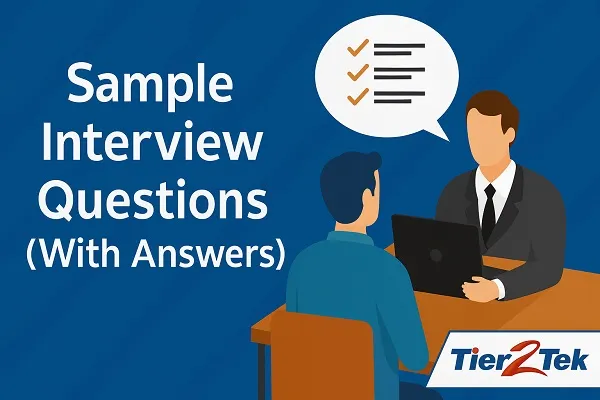
This page provides an insightful collection of sample interview questions and answers, tailored to assist both job seekers in preparing for interviews and hiring managers in conducting them. It covers a wide array of questions, from behavioral to situational, offering strategic responses that exemplify how to effectively convey skills, experience, and suitability for a role. This guide is an essential tool for understanding the nuances of the interview process and mastering the art of interviewing from both sides of the table.
Common Interview Questions: These are typical inquiries used by employers in job interviews to evaluate a candidate’s suitability, skills, and experience, aiding in effective preparation and assessment.
Behavioral Interviews: These focus on the candidate’s past experiences and behaviors. Interviewers ask questions about how the interviewee handled certain situations in the past to predict their future behavior.
Cultural Fit Questions: Aimed at determining whether a candidate’s values, beliefs, and behavior are in line with the company’s culture. They help assess how well the candidate would integrate into the team and company.
Motivational Questions: These questions explore the candidate’s reasons for applying for the job, their career aspirations, and what motivates them. This can include questions about why they want to work for your company or what they are looking for in a role.
Leadership Questions: For roles that require leadership, these questions assess a candidate’s ability to lead, motivate, and guide others. They can also reveal their leadership style and effectiveness.
Emotional Intelligence Questions: These questions evaluate a candidate’s emotional intelligence, including their self-awareness, empathy, and ability to manage their emotions and relationships.
Information Technology (IT)

IT Service Desk
Tests candidates on their ability to manage IT support queries and resolve user issues, with questions often focusing on past customer service experiences and problem-solving skills.
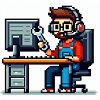
Desktop Support
Evaluates technical knowledge in installing, diagnosing, repairing, maintaining, and upgrading hardware and software, with interview questions typically about troubleshooting methods and customer service skills.

AV Specialist
Assesses expertise in managing and troubleshooting audiovisual systems, with questions usually about specific technologies used in AV setups and past project experiences.

NOC – Network Operations Center Staffing
Tests proficiency in network monitoring and incident response, with typical questions about network troubleshooting techniques and tools.

Systems Administrator
Evaluates a candidate’s capability to maintain and configure computer systems, often through questions about specific platforms (Windows/Linux) and real-world problem-solving scenarios.

Network Engineer
Focuses on understanding of network infrastructure, including design and implementation, with questions typically about past experiences with network architecture and specific protocols.

Cybersecurity Engineer
Assesses knowledge of security protocols, threat mitigation, and incident response, with interview questions focusing on security tools, strategies, and compliance.

Cloud Engineer
Tests skills in cloud architecture and operations, with typical questions on cloud service providers, scaling applications, and security in the cloud.

Database Administrator
Evaluates expertise in managing and optimizing databases, with questions often about database management systems, data backup, and recovery procedures.

Enterprise Architect
Focuses on the ability to align IT strategy with business goals, with questions typically about system interoperability, governance, and technology roadmaps.

Salesforce Specialist
Assesses knowledge in Salesforce CRM platforms and ecosystem, with typical interview questions about configuration, custom development, and user management.

Mobile Developer
Tests advanced skills in mobile app development across different platforms, with questions focusing on coding, adaptive design, and user experience.

Java Developer
Evaluates proficiency in Java and related technologies, with questions often centered on object-oriented programming, system design, and specific project experiences.
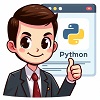
Python Developer
Tests knowledge of Python scripting and its applications, with typical questions about libraries, data manipulation, and integration with other tools.

PHP Developer
Assesses understanding of PHP for web development, with questions usually about server-side scripting, database interactions, and performance optimization.

Ruby on Rails Developer
Focuses on skills in Ruby on Rails framework for building websites, with interview questions typically about MVC framework, database integration, and testing.

MuleSoft Developer
Evaluates expertise in integrating different computing systems and software applications physically or functionally, with a focus on MuleSoft products.

SQL Developer
Tests proficiency in SQL database management and development, with typical questions about data handling, optimization, and complex query writing.

Full-Stack Developer
Assesses ability to handle both front-end and back-end development, with questions usually covering various programming languages and design principles.

C# Developer
Evaluates skills in C# programming and .NET framework, with typical questions about object-oriented design, CLR, and ASP.NET.

JavaScript Developer
Focuses on JavaScript programming proficiency, often through questions about frameworks, asynchronous programming, and front-end technologies.

.NET Developer
Tests knowledge of .NET framework and related languages, with interview questions often centered on ASP.NET, Entity Framework, and software design patterns.

SEO Analyst
Assesses understanding of search engine optimization strategies, with questions typically about on-page, off-page, and technical SEO.

SAP
Evaluates expertise in SAP systems, with typical questions about modules, customization, and data management.
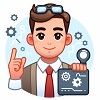
Technical Writer
Focuses on ability to create clear and concise user documentation, with questions often about writing processes, audience analysis, and tool proficiency.

IT Change Management
Tests skills in managing change to business processes, systems, and technologies, with interview questions focusing on methodologies and change impact analysis.

Business Analyst
Assesses analytical skills and the ability to understand business needs, with questions typically about problem-solving, software tools, and project management.

DevOps
Evaluates proficiency in development and operations, including CI/CD, infrastructure as code, and automation, with questions often centered on tools and practices.

VMWare Administrator
Tests knowledge in VMWare environments and virtualization technology, with typical questions about configuration, optimization, and troubleshooting.
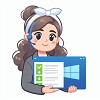
UI UX Designer
Focuses on design skills and understanding user interactions, with interview questions usually about design tools, process, and portfolio of past work.
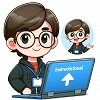
G Suite Administrator
Assesses skills in managing G Suite services and ensuring efficient operation, with questions typically about administration settings, user training, and security.
Engineering

Electrical Engineer
Focuses on the design, development, and maintenance of electrical systems. Interview questions often cover circuit theory, projects handled, and specific technologies used.
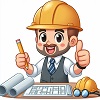
Civil Engineer
Involves designing, building, supervising, operating, and maintaining construction projects. Questions typically explore experience with CAD software, structural engineering principles, and project management.

Mechanical Engineer
Deals with designing and manufacturing mechanical systems. Interviewers often ask about thermodynamics, machine design, and examples of problem-solving in previous projects.
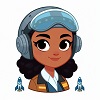
Aerospace Engineer
Focuses on the development of aircraft and spacecraft. Questions may involve aerodynamics, propulsion systems, and the candidate’s specific contributions to past projects.

Petroleum Engineer
Specializes in extracting oil and gas from deposits below the Earth’s surface. Typical questions could involve reservoir management, drilling operations, and experience with simulation software.

Industrial Engineer
Aims to improve industrial processes to increase efficiency and reduce waste. Common interview questions include process optimization techniques, system integration, and familiarity with safety standards.
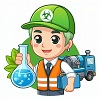
Environmental Engineer
Works on solutions to environmental problems including waste disposal, public health, and pollution control. Questions often focus on environmental regulations, project impact assessments, and sustainability practices.
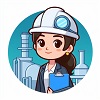
Process Engineer
Focuses on the design, operation, control, optimization, and intensification of chemical, physical, and biological processes. Interview questions usually address technical knowledge, process troubleshooting, and efficiency improvements.
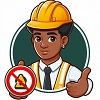
Safety Engineer
Ensures engineering projects and operations comply with safety regulations and practices. Questions might include risk assessment methodologies, compliance knowledge, and past experiences handling workplace incidents.
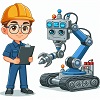
Robotics Engineering
Develops robots and automated systems that can perform tasks in industries like manufacturing. Interview questions often explore programming skills, sensor integration, and examples of previous robotics projects.

CAD Drafter & Design
Creates computerized drawings and plans used in construction and manufacturing. Common questions involve proficiency in specific CAD software, understanding of material properties, and drafting standards.
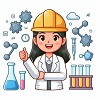
Chemical Engineer
Works on turning raw materials into useful, everyday products. Typical interview questions include reaction engineering, process design, and safety procedures related to chemical handling.
Management

IT Manager
Manages all IT-related issues within the organization. Interview questions might focus on technology implementation, team management, and IT strategy.

Technical Account Manager (TAM)
Serves as the bridge between technical teams and clients. Typical questions involve client management, technical support strategies, and account growth.

Program Manager
Oversees related projects in a program to ensure alignment with business goals. Questions often ask about program management processes, stakeholder management, and resource allocation.

Project Manager
Responsible for planning, executing, and closing projects. Interview questions might include project management methodologies, risk management, and project tracking.

Product Manager
Manages the development and lifecycle of a product. Typical questions cover product strategy, market analysis, and user feedback integration.

General Manager
Oversees various functions of a business unit or location. Interview questions can involve operational management, P&L responsibility, and strategic planning.

Operations Manager
Ensures smooth process flows across the company. Typical questions might involve process optimization, cost reduction strategies, and quality control.
